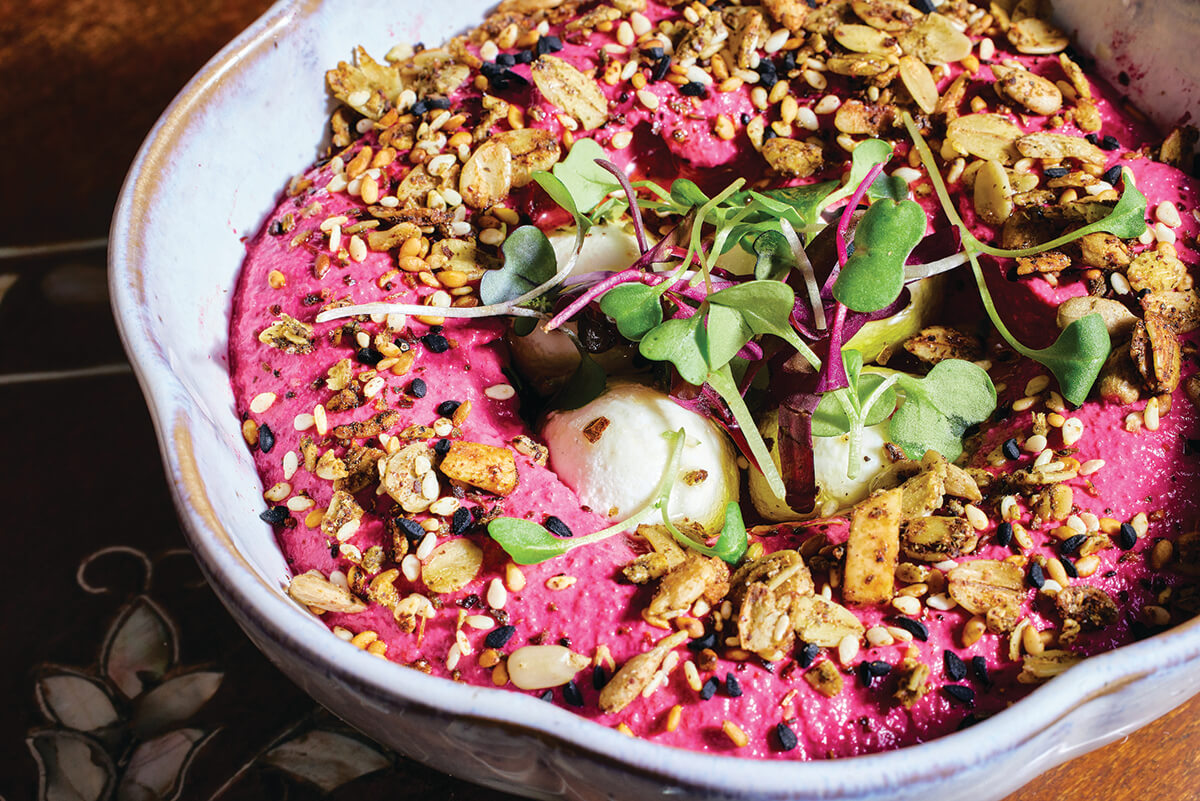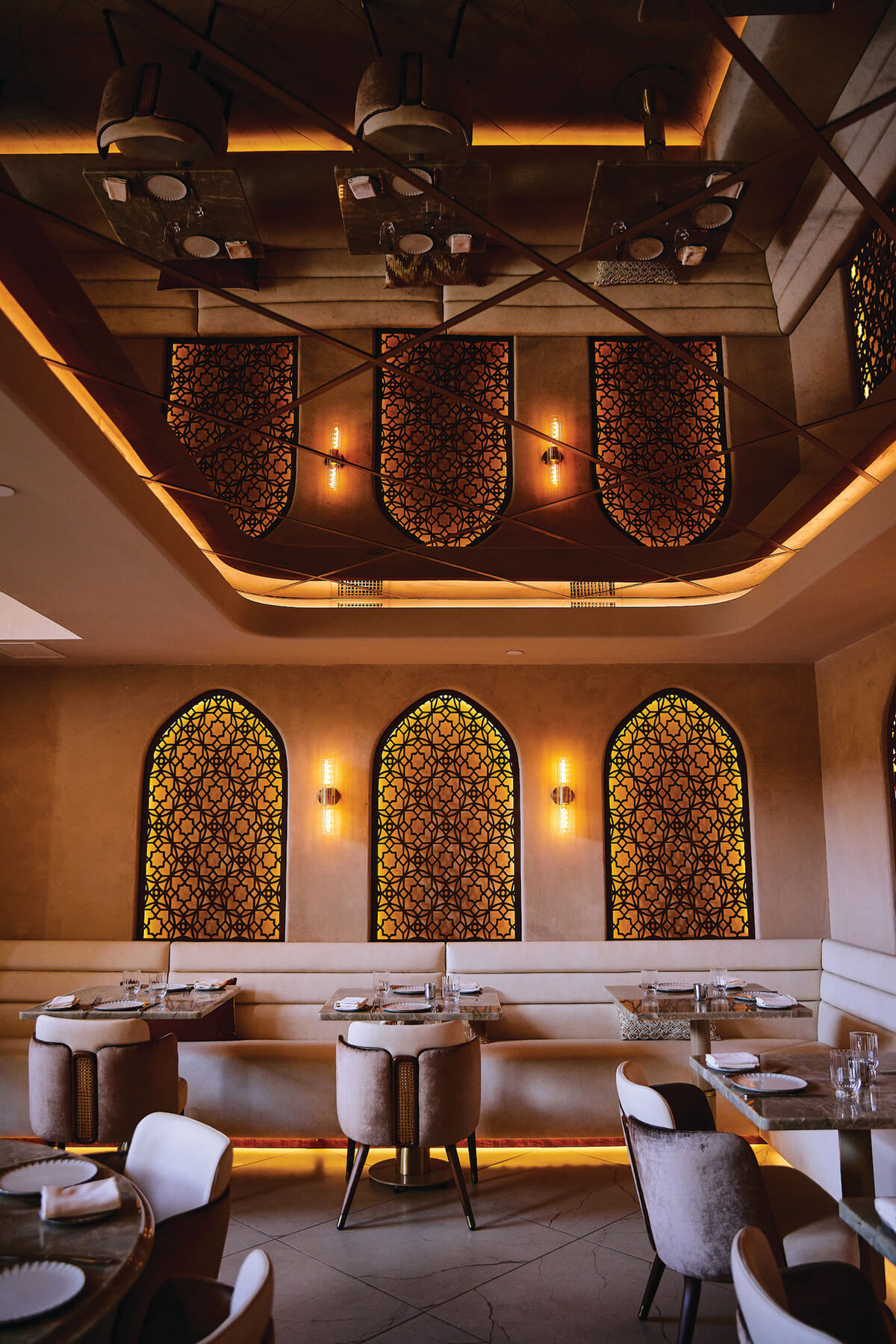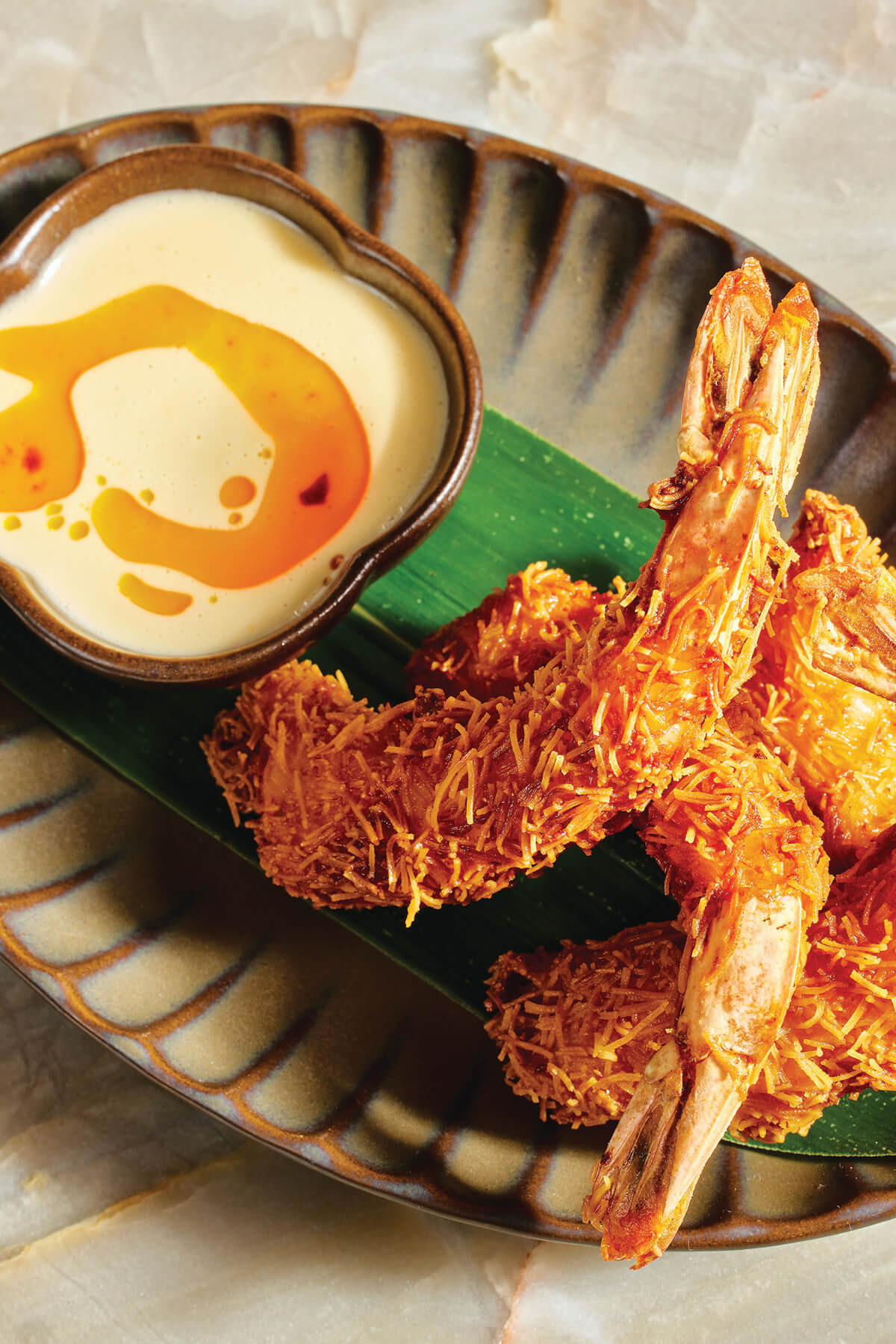Food & Drink
Review: Syrian Fare Sparkles at Ammoora in Federal Hill
Set inside the Ritz-Carlton Residences, Ammoora celebrates the dishes that tech entrepreneur-owner Jay Salkini and Damascus-born chef Dima Al-Chaar grew up eating.

From Afghanistan to Venezuela to Peru to Ethiopia, Baltimore’s dining landscape has become increasingly international. With the January opening of Ammoora, the newest country to join Charm City’s global gastronomy scene is Syria.
Even if you think you’ve never eaten Syrian cuisine, it will feel instantly familiar if you’ve ever sampled fare from the Middle East. Syrian food falls under the umbrella of Levantine cuisine. The Levant, historically along the southeastern corner of the Mediterranean (also known as “the fertile crescent”), includes the regions of Syria, Israel, Iraq, Jordan, Lebanon, Turkey, and Cyprus. There are slight variations of spices (mostly combinations of sumac, cinnamon, turmeric, cumin, and coriander) across the region, but the fare, dating back centuries, is similar from one country to the next. It’s colorful and aromatic, combining sweet and spice, texture and tang—and the plates are almost always shared.
Ammoora, set inside the Ritz-Carlton Residences in Federal Hill, celebrates the birthplace of tech entrepreneur-owner Jay Salkini. These are the dishes that he and his Damascus-born chef, Dima Al-Chaar, grew up eating. Influenced by old-school family recipes, Al-Chaar, who has opened restaurants from Dubai to Damascus, uses traditional ingredients and adds her own modern twist. The overall menu mission, says Salkini, is for Marylanders “to taste this amazing food that my mom and grandma made for us with style and with love.”


When you sit down to study the menu, you’ll likely crane your neck to see what others are eating. Go with a big party and order the recommended two to three small plates per person. We actually ordered more than that—and some of us left the table still hungry. (Be forewarned, the tab can grow shockingly high for what amounts to a lot of very small starters.)
That said, the oversized menu is filled with culinary treasures, including eight dips and a dozen or so hot and cold mezzes, plus flatbreads, soups, and salads. Vegetarians will rejoice that more than half the menu is plant-based. There are four entrees featured, but on each of my visits, my companions and I were too enamored with the appetizers to move on to the bigger plates.
SYRIAN FARE IS COLORFUL AND AROMATIC, COMBINING SWEET AND SPICE, TEXTURE AND TANG.
The dishes rotate every few months, so no two visits will be the same. On the dip side, among our favorites was the shrimp hummus, a creamy spread that adds a generous pile of crustaceans, as well as cilantro, lemon juice, and garlic, to the traditional chickpea dish—it’s the very best version of hummus you’ll ever have. The keshké—a thick labneh yogurt bolstered by bulgur, scallions, and walnuts and flecked with dried rose petals, is tangy and rich and offers a cooling component to drizzle onto almost anything else you order.
Another spread, the muhammara—roasted red peppers, walnuts, pomegranate molasses, tahini, and olive oil—is equal parts smokey and sweet and gets its zing from a hit of red chile paste. With its deep red and orange hue, it reminded me of a beautiful sunset. The kebbeh orfaliyeh—think Syria’s answer to beef tartare—was subtly seasoned with minced onions, bell peppers, marjoram, and red chile paste. A few of us at the table thought that it was slightly under-seasoned, while another dining companion deemed it “perfect.”
On the hot mezze side, everyone agreed that the beyti sujuk rolls—char-gilled beef folded into doughy lavash bread resting in a pool of piquant tomato sauce and dressed with a dollop of labneh—was a menu highlight, as was the clever knafeh shrimp deep-fried to perfection in kataifi dough (a shredded and spun phyllo dough usually used for Middle Eastern pastries), which provided an extra-crispy crust.
The shrimp, served with a tahini tajen swirled with chile oil for dipping, resembled mini corndogs. The Aleppo-style kebbet karaz hot mezze—lamb meatballs with bulgur, cinnamon, and mini meatballs floating in a sweet-and-sour cherry sauce—was terrifically tart and led to much negotiation over who would scrape the last bits from the bowl.

All the dishes are prettily presented. Many get dressed up with a sprinkling of nuts or a scattering of pomegranate seeds that glisten like jewels across the surface and make everything look elevated and extra elegant. The dips arrive with house-made pita served inside a Syrian mokhoul basket.
The space, all pink, rust, and cinnamon, with exquisite inlaid Mother of Pearl furniture and coffee carts imported from Syria, is as alluring as the food, though the front of the house is sexier than the back, which definitely channels more of a hotel restaurant vibe. The well-heeled crowd is diverse. Across various visits, we saw a table of Johns Hopkins professors, a Syrian family who drove in from Annapolis, as well as people who live at the Ritz Residences, all adding to the convivial vibe.
This is exactly what Salkini was after.
“Syria isn’t what you hear about in the news. We want to deliver the message that we have a lot of love, and we need to be loved,” says Salkini, referencing the recent earthquake in his country. “We wanted to bring the love and hospitality of the region.”
Ammoora—meaning “loving, beautiful, and captivating” in Arabic—truly embodies its name. It’s a round-the-world flavor journey worth taking—just know that this kind of travel doesn’t come cheap.

AMMOORA 751 Key Highway, 410-872-6610. HOURS: Daily 5-10 p.m. PRICES: Salads and soup: $10-16; mezze: $14-24; entrees: $36-55; desserts: $9-12. AMBIANCE: Elegant.